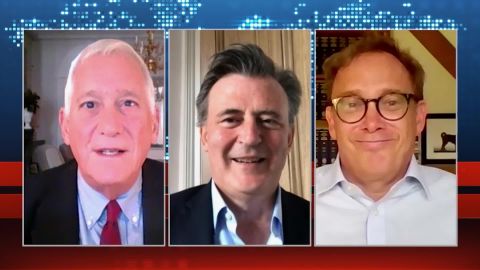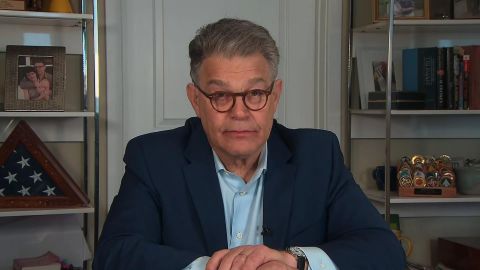Read Transcript EXPAND
KWAME KWEI-ARMAH, ARTISTIC DIRECTOR, THE YOUNG VIC: Yes. I mean, I describe it as kind of a triple threat of COVID, white supremacy and the insecurity of our sector financially. Waking up every day trying to fight on three fronts is quite a thing. And I think the exhaustion that comes from that actually brings a kind of steadiness in your soul and in your spirit. It says, what can I use my physical and spiritual mental resource for? And some of that banned with tax has been dealing with racism and dancing around it and, you know, it’s like gender. Somebody says something sexist, you go, do I do this battle now? Do I not, do I leave it to later? But actually, where I have got to right now is a place where the diplomacy that I might have used before, or actually giving people the benefit of the doubt, I do like giving people the benefit of the doubt, I’m going to reduce that just a little bit more so that people get to understand that this moment of profound listening, because that’s what I think black lives matter have done this time, it’s allowed our white peers to listen more profoundly. But it means we have to speak clearer, and I actually have to speak clearer. I have to demand a new world view.
CHRISTIANE AMANPOUR: Demand a new world view. You hear people in all sorts of areas of endeavor, not just in the arts, talking about diversity. But then others of color, black people, people of color, et cetera, saying, now, what does diversity mean? We’re really talking about representation. Is that perhaps a more accurate and less threatening, less political word to use that more likely represents what we lack, and that is a lack of representation?
KWEI-ARMAH: Yes. You know, I spent half of my life trying to negotiate around languages today. No, no, I don’t mean quotas. What I mean is this. So, no, no. I don’t mean anti-black racism, I mean diversity. And I think, you know, leading on from your last question, here’s what we need. We need our cities and our countries and our nations to look like it does demographically. In London we are over 43 percent of the population. If I walk into a theater and it does not look like London from its audience to its administrative team, it is not doing the job, and we have to get there. In every aspect of life, we have to make sure that every citizen is able to fulfill their potential. And it’s not Victorian philanthropy to do that. It is actually in our best interest. The best ideas come from people when they are free, when they feel they can walk into an institution and be their full self, not their part self. I think what I am asking for, and I use the word demand sometimes, but I think what we’re articulating is that we actually need to make sure that we get representation, that we get diversity, that we get anti-racist environments and that the structure and equalities that our countries face, that actually they are addressed with an immediacy so that we do not have to hand this down to our children.
About This Episode EXPAND
Kwame Kwei-Armah, artistic director of The Young Vic, discusses the Black Lives Matter movement and the pandemic’s effect on the arts. Former Sen. Al Franken (D-MN) gives his thoughts on President Trump’s first televised town hall of this election cycle. Journalists Adrian Wooldridge and John Micklethwait explain how the pandemic has highlighted weaknesses in Western governments.
LEARN MORE


